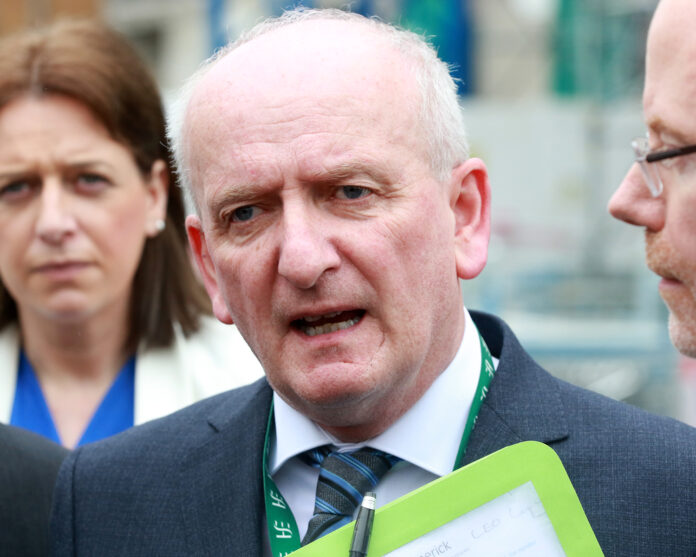
THE head of the Health Service Executive (HSE) is “hugely” concerned at growing waiting lists for disabled children seeking vital health assessments and admitted the crisis will get worse before it gets better.
HSE boss Bernard Gloster acknowledged a “significant challenge” in tackling the crisis, with more than 15,000 children nationwide with serious disabilities waiting to access their legal right to assessments.
“Until we get extra capacity and until we reform the legislation, we are going to be challenged,” Mr Gloster told reporters in Limerick this week.
“It would be very wrong of me to say anything different to people across the country, it would be untruthful to do that.”
The HSE predicts that the children’s assessment waiting lists will increase beyond 25,000 by the end of this year.
After meeting Cara Daramody, a 14-year-old campaigner for the rights of children with disabilities, Mr Gloster pledged that the HSE will advertise tenders for assessments to private clinicians to tackle the problem.
Prior to the meeting, Ms Darmody, accompanied by her father Mark Darmody, called out the government for breaching legislation requiring it to provide health and education needs assessments for children with disabilities, who, she said, had been left to rot on waiting lists.
The campaigner, who last month led a 50-hour protest outside the Dáil highlighting the crisis, said she gave Mr Gloster “crucial information that totally contradicts the myth that capacity has been reached in the system in relation to the number of psychologists available to assess autistic children”.
Ms Darmody said she also informed Mr Gloster that she is aware of private clinicians seeking to help reduce assessment waiting lists who have been delayed in doing so by bureaucracy.
She claimed she knows of at least one private clinician who could have “eradicated” the assessment of needs waiting list in her home county of Tipperary over the last 12 months by performing an additional 220 assessments, had they been given the opportunity.
Ms Darmody said the clinician applied for a HSE assessment tender last October, “but only got confirmation a month ago” that they had been accepted.
Mr Gloster said he was “taken aback” at the details presented to him by Cara and Mark Darmody.
Commentating on the alleged eight-month wait for the provision of the assessment tender, Mr Gloster said: “I have to say, it can happen, we are a very big organisation and we have to have rules and systems, and they, by their nature, can become bureaucratic.”
“I’m the first to put my hands up and say, ‘that’s for us to do better’,” he said.
“I don’t think that my own people are doing anything bad or wrong, but it is for us to better, we are paid public servants and Cara and her dad are not.”
Mr Gloster said, going forward, he would try to “tighten the timeline” on assessment tenders applications by the private sector.
He acknowledged that in the short-term the HSE required help from the private system to help reduce assessment waiting lists.
“In the next few weeks, we are going to redesign the specification of private sector provision to help us provide assessment of need,” Mr Gloster said.
“We are going to widely advertise and promote it, so that if there are suitably qualified clinicians who can conduct an assessment of need, and who are qualified and registered to do so, and are safe to do so, then there will be no issue with us using that additional capacity.”
Mr Gloster accepted that “if you apply for an assessment of need, you are entitled to it in law, you should be able to get it”.
The Limerick-native health service boss said other challenges existed beyond the assessments, including timelines over children’s access to therapeutic support and intervention and the number of therapists available in the country.
Mr Gloster said that Cara and Mark Darmody’s anecdotal evidence of a possible reduction in the waiting lists may exist in the private system, their arguments to investigate it further was “legitimate and appropriate”.


